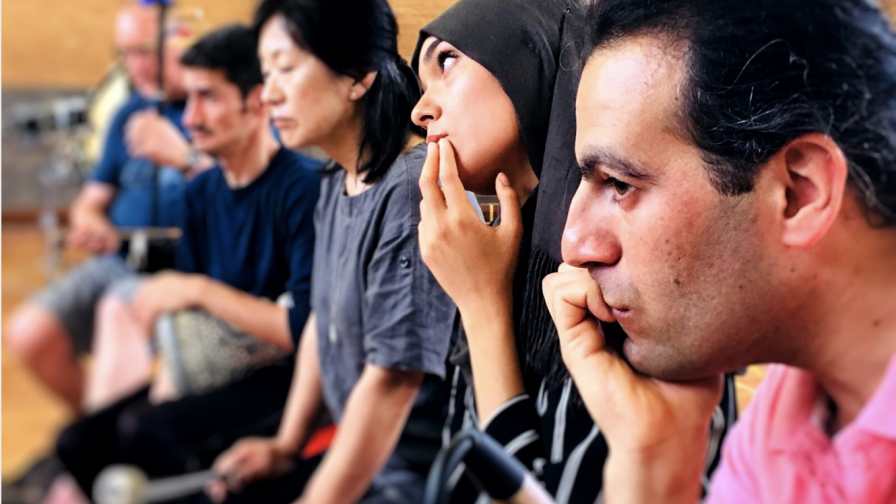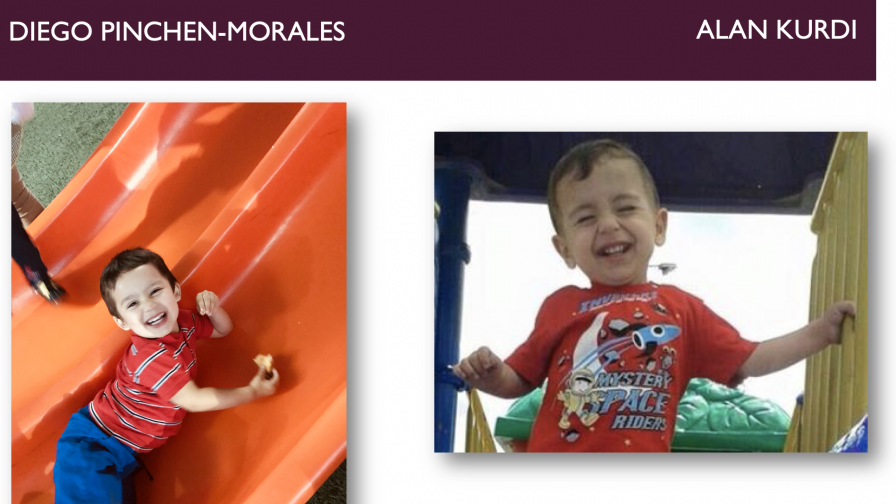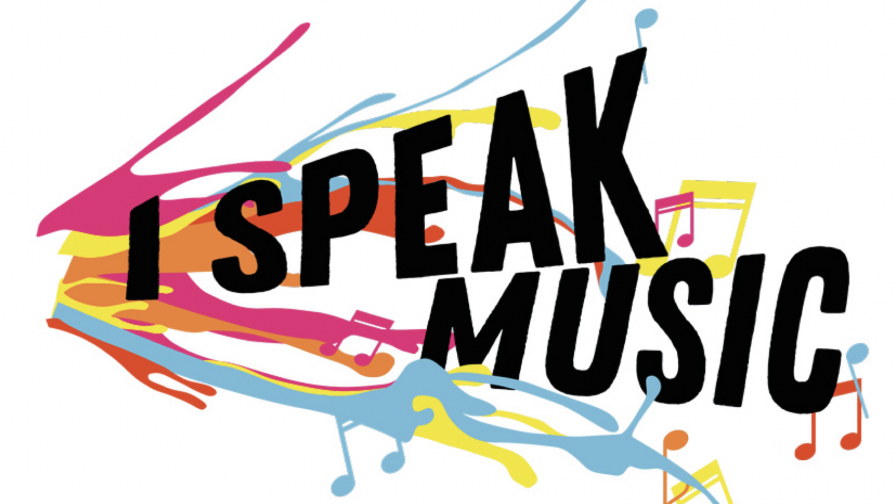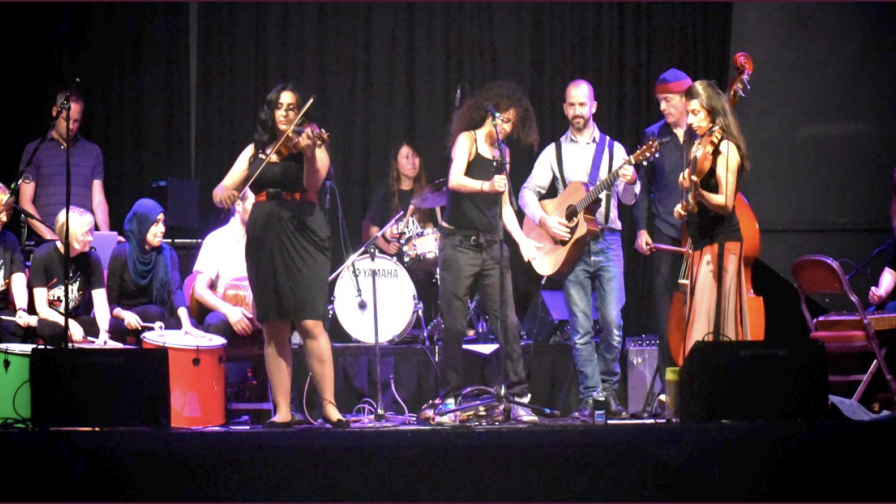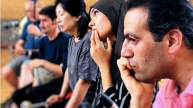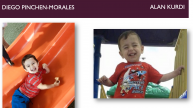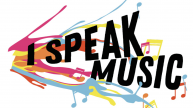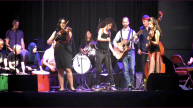I Speak Music - building empathy between refugees and host communities
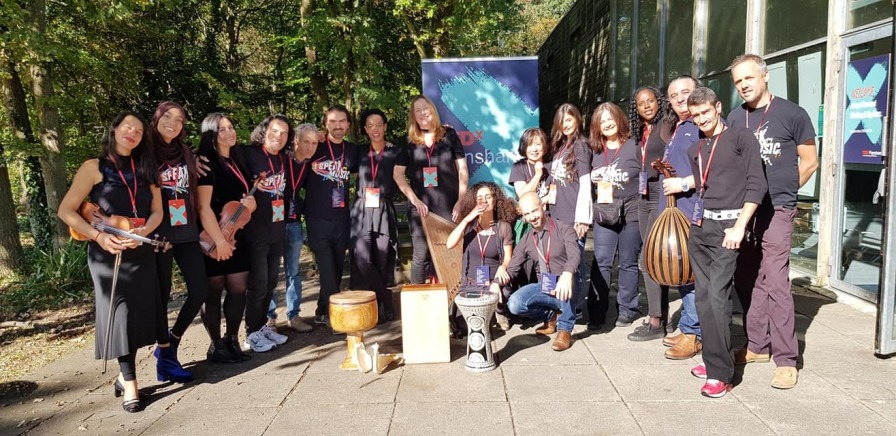
Studies of how music making affects the brain, the nervous system, emotional well-being, mental health, numeracy, literacy etc are all well documented by people way more qualified than me. These benefits are of course pertinent to this project but what I’d like to explore with you in this post is something that is both unique and universal.
If you look closely enough, every journey and every idea starts with one defining moment, and this was certainly true for me with this project.
I have a half Mexican, half English son Diego. I remember vividly this day when Diego was exploring my guitar with glee and curiosity. He was dressed in blue shorts and a red top and I was guilty of having half an eye on the news in the background as he played. I remember in that moment seeing for the first time the image of a three-year-old Syrian boy, also dressed in blue shorts and red top, washed up on a beach in Turkey. The boy was Alan Kurdi.
I, like millions of others around the world felt the immediate connection between Alan and my Diego and was filled with horror, deep sadness and to be honest utter helplessness. In that moment I imagined Alan Kurdi playing music with Diego, different languages, different cultures and religions but joined by a love of sound and joyful play. This image uplifted me and was essentially the seed that started this project.
The back drop to the Alan Kurdi photo was and still is a world where facts and truth seem to have lost their weight and where fierce opinions are voiced unchallenged in polarised echo chambers, deepening divides and leaving space for ignorance and prejudice to grow.When we only experience people who look, think and talk like us there is no place left to contemplate the pain and the potential of the individual human, all that connects us, and crucially, the future possibilities that might exist in the non-consensual colliding of our cultures. I’m by no means an ethnomusicologist, a trauma specialist, a politician or even a specialist in world music but what I do know from my experiences is that when people who would not normally meet are brought together in a safe and creative environment that’s when change starts to happen. Stereotypes are self-challenged, friendships are made and negative perceptions dissolve to be replaced by inquisitive warmth and friendship. Empathy can never be enforced through words alone. It only ever becomes part of the noise that already exists, but within music I believe lies fundamental truths that connect us all.
So, I had an idea to create a music project that would bring refugee and non-refugees together musically I was not sure quite where to start…
In the quest to cut through the noise and focus on what we might possibly have in common, through the lens of music, rhythm is probably a good starting point. Rhythm is something we all share. It’s fundamental to life, from a baby’s heartbeat at 6 weeks old, to train tracks, bird song and the waves beating the shore we find beats everywhere in life. That’s why we start every I Speak Music rehearsal with rhythm exercises and I’d like to share such an exercise with you now.
In Arab culture the zaffa is a musical procession of bendir drums, bagpipes, horns, belly dancers and men carrying flaming swords. This is an ancient tradition, possibly predating Islam.
1 + 2 + 3 + 4 + | 1 + 2 + 3 + 4 + |
dum tek ka tek tek dum tek tek (tek ka)
In Afro-Cuban music, the 2:3 clave is a rhythmic pattern used as a tool for temporal organization. The clave pattern originated in sub-Saharan African music traditions, where it serves essentially the same function as it does in Cuba.
A simple exercise of fusing these rhythms acts as a metaphor for what happens with the orchestra. If Diego and Alan could have met in an orchestra they would have brought with them a mix of Arab, Latino and Western Rhythms.Rhythms capture and reflect the complexities of political change, ceremonies, migration and musical heritage and much more.When these rhythms come together the air is filled with something subtly profound. Each player is able to express their cultural identity through their musical expression whilst simultaneously experiencing the cultural identity of their neighbour. Most importantly of all, in this ‘coming together’ something new and equalising is being created and filling the space.
So, I had an idea of bringing together musicians and non-musicians, refugees and non refugees and by doing so create an environment where 1. our differences are encouraged and celebrated and 2. we might create something new and wonderful together and we’ve had a brief look at how rhythm and music might aid this process. This resulted in a Youth Music funded song-writing programme for young people and a project for adults which would act as a musical progression opportunity for our youth participants
The I Speak Music Family
Although I’ve written largely about my experience, these projects are ALWAYS about the dedication of individuals. Myself and viola player and Syrian refugee, Raghad spent a day visiting and jamming with local Syrian families. Me and Iranian violinist Sara took a group of refugee children on a music related field trip. Myself and my Arabic speaking colleague Mona organised an event that brought together musicians, counter terrorism police and arts organisations.
These individuals and many others have worked with me to build a unique family, who now make up the orchestra.
The players in the orchestra have had both remarkable and unremarkable journeys. Somehow our separate and unique journeys have brought us together into what was recently described by a member of Surrey Counter terrorism unit as “a beautiful and unique family of musicians”. As a family we have been displaced by war, threatened and hounded by the British far right, kidnapped, tortured, taken unseaworthy boats from Libya to Italy. In our short time together we have shed tears, laughed, eaten, drank and performed on stage. We are world class standard musicians as well as complete beginners. We are brothers, sisters, fathers, mothers, friends, uncles, aunts. We are Catholic, Protestant, Muslim, atheist, humanists, meat eaters, halal eaters, vegetarians, vegans.
We play different instruments, we like different music, we speak Arabic, English, Korean, Farsi, Kurdish, Spanish, Japanese but most of all we are a family who all speak music.
My personal vision for the project is for this model to grow and to be replicated up and down the country and who knows maybe beyond the UK. For a network of orchestras to grow like a web and to gently dilute the current polarised paradigm through the sharing of music. An orchestra where Diego and Alan Kurdi could have becomes friends, told their family and friends about the orchestra, who then tell their friends and family until the message slowly starts to cultivate warm curiosity, cultural tolerance and empathy between refugees and host communities.
So, if you have ever wanted to play in an orchestra please join or even start your own I Speak Music orchestra. Your life journey and musicality at whatever stage is unique and it’s the sharing of our uniqueness that paradoxically allows for all that we have in common to come alive and unite us.

